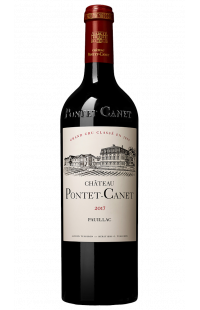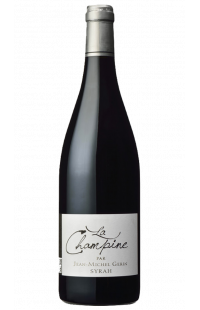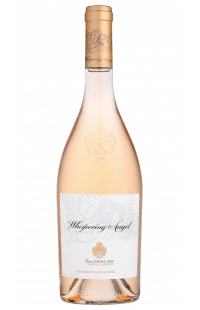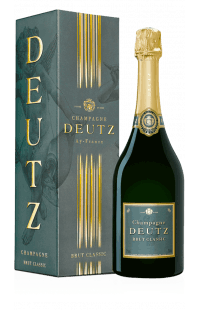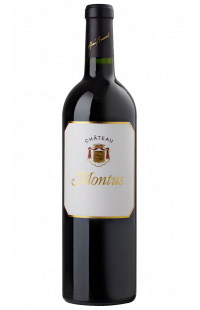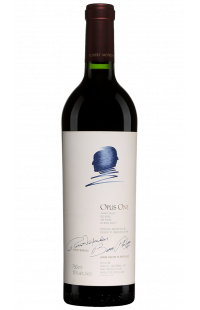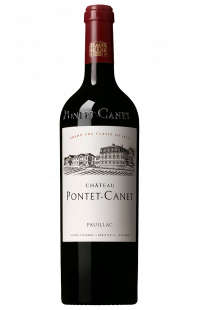- Menu
- All our wines
- Bordeaux
-
Rhône
-
Burgundy
-
Rosés Wines
-
Champagne
- France
-
World
- PRIMEURS
- ORGANIC WINES
Morey-Saint-Denis Wines
There are 4 products.
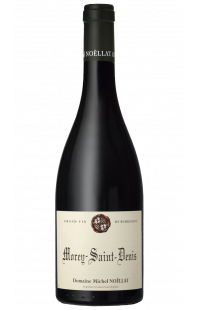
Available in
- Bottle (75cl)
- 58.00€ / bottleTASTING NOTES
Specifications
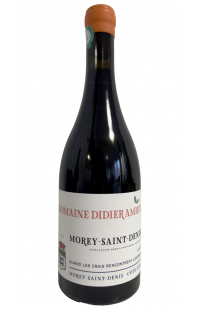
Available in
- Bottle (75cl)
- 59.00€ / bottleTASTING NOTES
Specifications
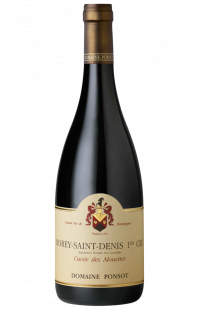
Domaine Ponsot : Morey Saint Denis 1er Cru - Cuvée de Alouettes 2020
Burgundy - Morey-Saint-Denis - 1er Cru - Red Wine -Available in
- Bottle (75cl)
- 185.00€ / bottleTASTING NOTES
Specifications
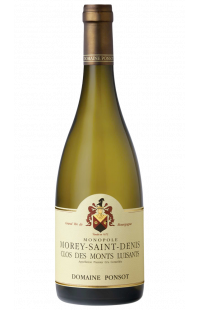
Domaine Ponsot : Morey Saint Denis 1er Cru - Clos des Monts-Luisants Monopole 2020
Burgundy - Morey-Saint-Denis - 1er Cru - White Wine -Available in
- Bottle (75cl)
- 185.00€ / bottleTASTING NOTES
Specifications
History and Unique Characteristics of Morey-Saint-Denis Wines
Morey-Saint-Denis is an iconic wine village located in the Burgundy region of France. Known for its exceptional red wines produced from the Pinot Noir grape, this village boasts a rich viticultural history dating back to the Middle Ages. This article explores the history, terroirs, and distinctive characteristics of Morey-Saint-Denis wines, as well as the Grand Crus that make this village renowned.
History of Morey-Saint-Denis
Origins and Evolution of the Village
The village of Morey-Saint-Denis, located in the Côte-d'Or department of Burgundy, has a long and rich viticultural history. First mentioned in 910 under the name "Mauriacus," the village evolved over the centuries to become "Morey." It was not until the 19th century that the village added "Saint-Denis" to its name, in homage to Clos Saint-Denis, one of its most prestigious vineyards.
Development of Viticultural Reputation
Wine production in Morey-Saint-Denis dates back to the Middle Ages. However, it was in the 19th century that the renown of Morey-Saint-Denis wines truly established itself. The wines from this village have always been appreciated for their robustness and structure, distinguishing themselves from the wines of Chambolle-Musigny and Gevrey-Chambertin, while maintaining similar finesse and elegance.
Geography and Terroir
Location and Geographical Characteristics
Morey-Saint-Denis is located in the Côte de Nuits, a sub-region of Côte-d'Or. The vineyards of Morey-Saint-Denis benefit from optimal exposure and limestone-rich soil, providing ideal conditions for the cultivation of Pinot Noir.
Impact of Terroir on Wine
The terroir of Morey-Saint-Denis imparts robustness and aromatic complexity to the wines. The limestone soils, combined with a continental climate, allow for the production of balanced wines, blending power and elegance.
The Pinot Noir Grape
Importance of Pinot Noir in Morey-Saint-Denis
Pinot Noir is the king grape of Morey-Saint-Denis. It is renowned for its ability to express the nuances of the terroir, offering wines with red fruit aromas, spices, and underbrush notes.
Grape Characteristics
Pinot Noir is a delicate and demanding grape variety, requiring specific conditions to reach its full potential. In Morey-Saint-Denis, it produces rich and complex wines with excellent aging capacity.
Winemaking Techniques
Traditional Methods
Winemaking in Morey-Saint-Denis remains deeply rooted in tradition. Winemakers favor an artisanal approach, with manual harvesting and fermentation in open vats.
Modern Innovations
Despite their attachment to traditional methods, producers in Morey-Saint-Denis integrate modern techniques to further enhance wine quality, such as precise temperature control during fermentation and the use of new barrels for aging.
Grand Crus of Morey-Saint-Denis
Clos Saint-Denis
Clos Saint-Denis is one of the most famous Grand Crus of Morey-Saint-Denis. It produces wines of great finesse, with red fruit and violet aromas, and a balanced tannic structure.
Clos des Lambrays
Clos des Lambrays is another emblematic Grand Cru, known for its powerful and complex wines, featuring notes of dark fruits, spices, and leather.
Clos des Ormes
Clos des Ormes is renowned for its elegant and well-structured wines, offering ripe fruit aromas and a beautiful finish.
Comparison with Gevrey-Chambertin and Chambolle-Musigny
Similarities and Differences
The wines of Morey-Saint-Denis are often compared to those of Gevrey-Chambertin and Chambolle-Musigny. While Gevrey-Chambertin is known for its powerful and muscular wines, and Chambolle-Musigny for its elegant and silky wines, Morey-Saint-Denis combines these characteristics, producing robust yet refined wines.
Tasting and Tasting Notes
Tasting Profile
Morey-Saint-Denis wines are characterized by aromas of red and black fruits, spices, and underbrush. On the palate, they exhibit a beautiful tannic structure, balanced acidity, and a long, elegant finish.
Aromas and Flavors
Typical aromas include cherry, raspberry, blackcurrant, as well as spicy notes of pepper and clove. With aging, tertiary aromas of underbrush, truffle, and leather develop.
Food and Wine Pairings
Pairing Suggestions
Morey-Saint-Denis wines pair perfectly with rich and savory dishes. Try them with beef bourguignon, coq au vin, or aged cheeses like Comté or Reblochon.
Pairings with Traditional Dishes
For an authentic experience, serve Morey-Saint-Denis wines with Burgundy cuisine dishes such as entrecôte with marrow or Burgundy snails.
Aging and Development
Aging Potential
Morey-Saint-Denis wines have excellent aging potential, especially the reds. While delicious in their youth, they gain complexity and depth over time, potentially improving for several decades.
Evolution of Aromas
With aging, fruity aromas give way to more complex notes of underbrush, truffle, and leather, making the wines even more fascinating to taste.
Influence of Climats
Impact of Climate Variations
Climate variations significantly impact the production and quality of Morey-Saint-Denis wines. Hot vintages can produce richer and more opulent wines, while cooler vintages favor elegance and finesse.
Viticultural Economy
Economic Role of Viticulture
Viticulture plays a crucial role in the economy of Morey-Saint-Denis. The wine village attracts wine enthusiasts from around the world, supporting local tourism and employment in the region.
Wine Market and Exports
Morey-Saint-Denis wines are highly sought after in the international market. Exports represent a significant portion of production, with growing demand in Europe, North America, and Asia.
Producers of Morey-Saint-Denis
Leading Wine Estates
Among the notable producers of Morey-Saint-Denis are Domaine des Lambrays, Domaine Dujac, and Domaine Arlaud, each contributing to the region's renowned wine reputation.
Innovations and Practices
Producers in Morey-Saint-Denis are at the forefront of innovation while respecting viticultural traditions. They adopt sustainable and organic practices to preserve the environment and the quality of their wines.
Visiting Morey-Saint-Denis
Local Attractions
Visiting Morey-Saint-Denis offers an immersion into the history and viticultural culture of Burgundy. Visitors can explore vineyards, taste wines in local cellars, and discover the village's architectural heritage.
Wine Routes and Local Events
The Burgundy wine route passes through Morey-Saint-Denis, offering a complete oenological experience. Don't miss local events such as harvest festivals and tastings organized by wine estates.
Sustainable Initiatives
Environmentally Friendly Practices
Many producers in Morey-Saint-Denis are committed to sustainable viticultural practices. Organic and biodynamic farming is increasingly widespread, contributing to the preservation of the terroir and the production of high-quality wines.
Morey-Saint-Denis Wines
Overview of Produced Wines
Morey-Saint-Denis primarily produces red wines from Pinot Noir, but also some white wines from Chardonnay. The wines are distinguished by their richness, complexity, and aging potential.
Styles and Appellations
Morey-Saint-Denis wines are classified into different appellations, ranging from communal appellations to prestigious Grand Crus. Each appellation offers a unique expression of the terroir and grape variety.
Future Perspectives
Challenges and Opportunities
The future of Morey-Saint-Denis wines is promising, despite challenges posed by climate change and market fluctuations. Producers continue to innovate and adapt their practices to meet the growing demands of consumers.
Innovations and Trends
Current trends include increased demand for organic and natural wines, as well as a renewed interest in traditional winemaking techniques. Producers in Morey-Saint-Denis are well-positioned to capitalize on these trends.
Summary and Conclusion
Morey-Saint-Denis is a wine village with a rich history and a well-deserved reputation for its exceptional wines. From Grand Crus like Clos Saint-Denis to traditional winemaking techniques, every aspect of viticulture in Morey-Saint-Denis contributes to the quality and uniqueness of its wines. By visiting this charming village, wine enthusiasts can discover the passion and expertise behind every bottle.
FAQ on Morey-Saint-Denis Wines
What are the main grape varieties used in Morey-Saint-Denis?
Pinot Noir is the main grape variety used for red wines, while Chardonnay is used for white wines.
What are the Grand Crus of Morey-Saint-Denis?
The Grand Crus of Morey-Saint-Denis include Clos Saint-Denis, Clos des Lambrays, and Clos des Ormes.
How do Morey-Saint-Denis wines differ from those of Gevrey-Chambertin and Chambolle-Musigny?
Morey-Saint-Denis wines are more robust and structured while maintaining similar finesse and elegance to those of Gevrey-Chambertin and Chambolle-Musigny.
What is the aging potential of Morey-Saint-Denis wines?
Morey-Saint-Denis wines have excellent aging potential, capable of improving over several decades.
What sustainable practices are adopted by producers in Morey-Saint-Denis?
Many producers adopt organic and biodynamic farming practices to preserve the environment and wine quality.
What are the best times to visit Morey-Saint-Denis?
The best times to visit Morey-Saint-Denis are during the harvest season in September and October, as well as during local wine events throughout the year.
Conclusion
Morey-Saint-Denis wines, with their richness and complexity, are a true treasure of Burgundy. Whether you are a wine enthusiast or a novice, a visit to Morey-Saint-Denis promises an unforgettable experience. Traditional winemaking techniques, unique terroirs, and a commitment to sustainability make Morey-Saint-Denis wines exemplary of Burgundian viticultural excellence.
